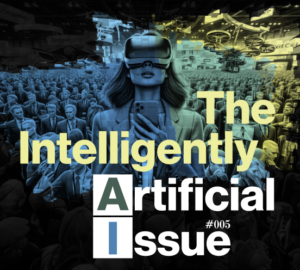
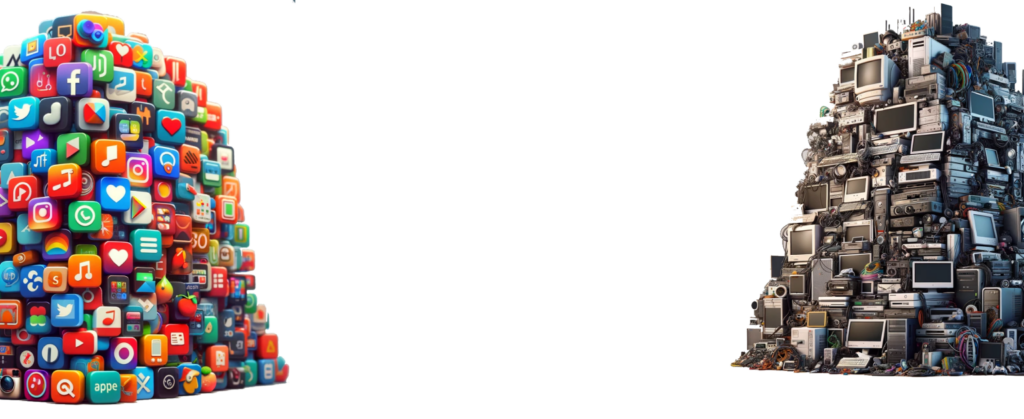
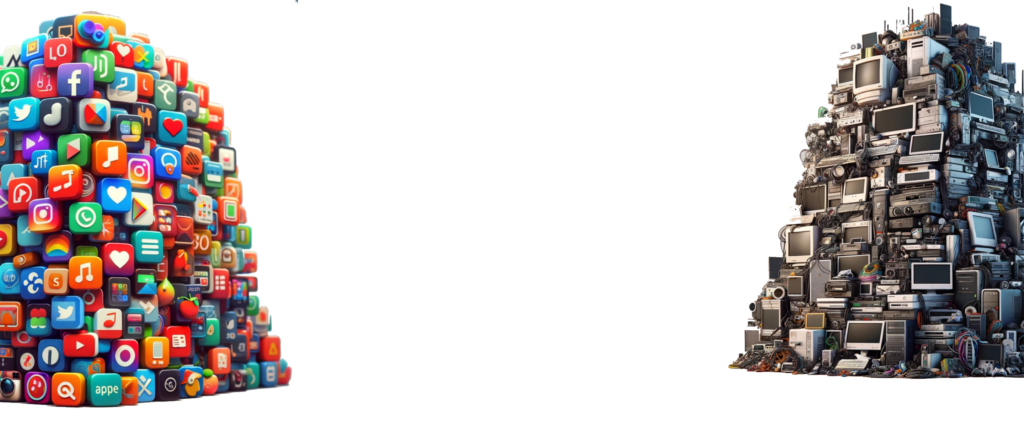

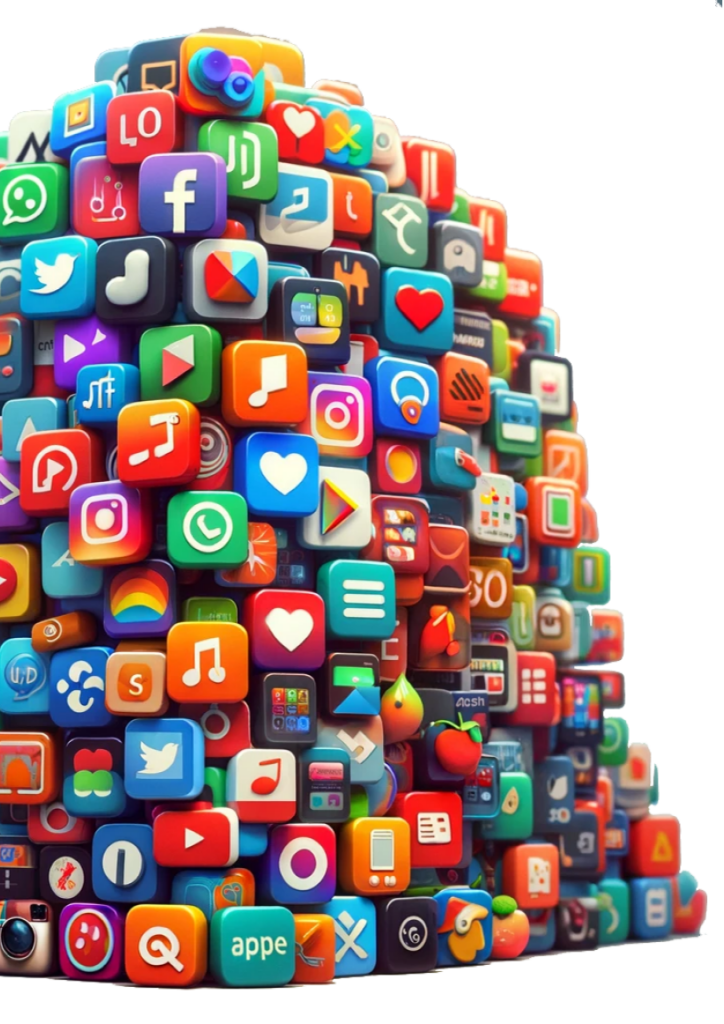
What is a
better
differentiator
in the AI era?

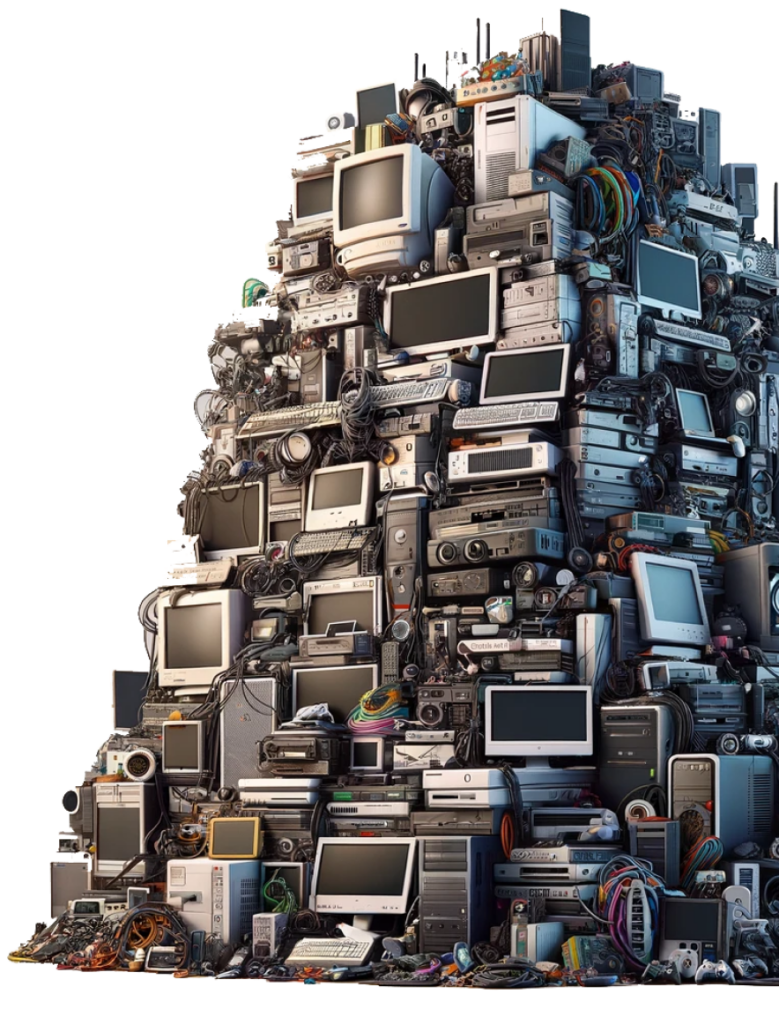

From the editor: Below we have recreated a recurring debate from our discourse-driven floor tours at CES 2024. On one hand, the AI era is making good software ubiquitous; is that a threat to brands that are looking to distinguish themselves? On the other hand, novel hardware might be taking over as the most reliable strategy for differentiation. Two of our co-founders have polar opposite responses to the question: what is a better differentiator in the AI era?
Software
Hardware
Think back to past CES events. There have been very few times where the hardware unveiled therein had a material impact on the world or enabled businesses to operate differently.
I wouldn’t ignore hardware, but in the AI race, software far outweighs hardware. Making supply chain changes to improve hardware is far easier than creating true differentiation in software.
You can change the form factor in a product innovation cycle more easily than you can move quickly with AI. As everyone tries to innovate, whether that be in services, operations, business intelligence, generative functions, or any other area, the differentiation when applying AI is going to be in the software, not the hardware. It’s the software that differentiates the hardware to create loyalty and habit.
So, when I’m at CES, I’m looking for the guts of things and the differences in capabilities that the guts provide, rather than the form factors.
But...
Because software is easy to iterate on, everybody can and will do so, which means the ability to have differentiation will reduce very quickly. AI’s biggest strength is the consolidation of data and action.
Finding differentiation through uniqueness of service value will diminish as consolidation enables accessing data across industries. The ease of entry means that the super apps and the larger corporations will just suck any uniqueness into their offerings.
Hardware is a different story. Physicality and context to a human being is something that can be unique and ownable. It’s very difficult and very expensive, but that’s where the opportunity is.
If you’re able to gain permanent access in a unique way, whether via a connected device, a physical screen, a camera, a connected piece of jewelry, AI-driven glasses, or physical locations, you will be on the front lines to deliver an exceptional and differentiated experience that a software developer cannot quickly achieve. Hardware lets you create a moat in a world where software is consolidating.
Well...
If the hypothesis is that AI software development is simple, then hardware is the differentiator. Sure. I don’t think, however, that any significant differentiation or innovation in AI applications is going to be simple.
Companies that are going to use software and AI-driven software to differentiate either their services or their products won’t be doing quick software development cycles. Those are very long-term development cycles, primarily because developing differentiation and value requires creativity in how one uses the data. Achieving differentiation in turn requires a thoughtful and dedicated data strategy that may take a very long time to get critical mass to unlock the power of that data.
These are long-term software development cycles, not quick-turn things that can be replicated using open-source models with minimal layering. So, if you’re going to drive to that level of differentiation, the longer-term development timeline is all about the software, not the hardware.
I do not believe large companies with massive R&D budgets are going to rely on off-the-shelf AI software to enable the products, services, and experiences that will fuel their growth. They will invest in custom models, custom datasets, and custom AI applications, and that will become the IP that helps drive their valuations. These are long-term software development cycles, not quick-turn sprints that can be replicated using open-source models with minimal layering. So, if you’re going to drive to that level of differentiation, the long-term development timeline is all about the software, not the hardware.
This article is part of The Intelligently Artificial Issue, which combines two big stories in consumer tech: AI and CES.
Read more from the issue:
USER EXPERIENCE
Augmented Intelligence: from UX to HX
Will prompting replace browsing?
The car is the gateway drug to a voice-first acceleration
The prompt interface needs a redesign
RE-ORG
AI will brainstorm your next reorg
Expect fewer managers and direct-reports
AI is too immature for your business
AI is not a new revolution
BRAND
Should we ignore the hardware?
Can AI help consumers love your brand?
Your brand doesn't have enough data for AI
Can LLMs be optimized like search results?
Good brands will integrate more friction into their C X
I know, but...
I think a long-term view will only give further opportunity for software to consolidate. If the view is long term, that gives you the runway to create differentiation in hardware. The software landscape is a race between dozens of companies trying to execute every imaginable idea. Over a long-term timeframe, the large-scale companies are going to swallow those up.
If you look at the landscape of software, you’re seeing a race of dozens of companies trying to execute every imaginable idea. The large-scale companies are going to swallow those up, over a long-term timeframe.
If you can surprise through unique hardware, that will be the differentiator. If you develop a piece of software over the long term, a competitor will only be able to replicate it faster and faster. If you develop a piece of hardware over the long term, especially one that resonates with people enough that they purchase it, you have the advantage of physicality and can drive your unique software differentiation through that owned touchpoint. You will own that moment in a way that no one can just iterate on.
There are dozens, if not hundreds of companies working on the same use case that will eventually come to the market. Say you spend two years on a specific use case leveraging your AI. You launch and then three months later, another company does something very similar. It’s marginally better or marginally worse. There is no moat to hold that customer in that unique way.
Conversely, say you spend two years working on a unique piece of hardware and launch it. Say people purchase it and then three months later, there’s a competitor. Your customers are not just going to buy the next piece of hardware. You’ve already beat them onto your customer’s body, into their home, or into their physical world. That creates a uniqueness that can’t just be quickly taken away from you.
So, in conclusion...
Hardware matters. Imagine a company invents new AR tech that can be easily integrated into any piece of glass. Imagine a company that builds a platform to let anyone cheaply project onto any piece of glass. Either way, every window can now be a screen. That matters. Your brand may not be the company that invents a new form factor, but you need to be able to leverage the latest innovation. Ultimately, you can’t ignore hardware or the software.
If your brand wants to build a moat, however, the key isn’t hardware or software. It’s data. To stay relevant, business leaders must figure out how to leverage software-enabled hardware to deploy robust data strategies.
The question then is: Do you have the data to be competitive?


